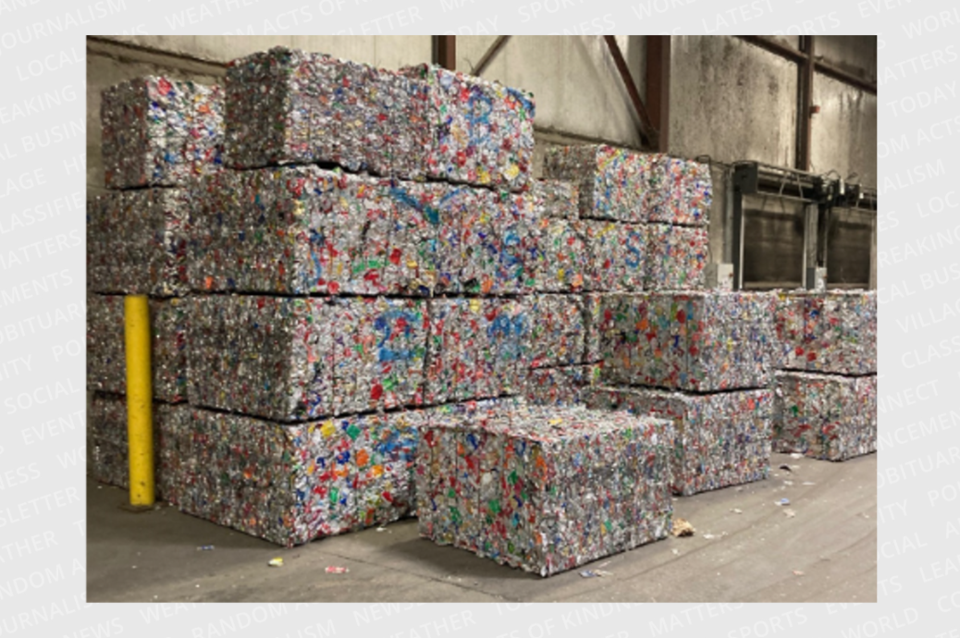As city officials prepare to transition out of the recycling business next year – something that’s being phased-in among municipalities province-wide – there is potential for public drop-off services to be retained.
Efforts are underway to reach an agreement with Circular Materials, the not-for-profit organization created by retailers and other packaging waste-producing companies to assume responsibility for recycling efforts, that would see drop-off collection continue beyond 2026. That’s when the company’s mandate to provide public drop-off collection will expire.
“It is the goal of the transition team to minimize impacts to residents, and staff are on track with implementing a comprehensive transition plan that prepares stakeholders, staff, assets, and operations for the changes,” states a city staff report released on Friday.
“Staff will continue to transition Blue Box services provided by the city to the new producer responsibility model in a manner that minimizes disruptions to the community while maximizing value through transition to the taxpayers.
“The city is still pursuing an agreement with acceptable terms and compensation to collect Blue Box materials at the public drop-off,” it adds.
Transition to the producer-pay system was announced by the provincial government in 2020 and began last July through a phased-in approach. Guelph’s transition is set for Jan. 1 of 2025.
Province-wide, the transition is slated for completion by the end of next year.
Currently, city taxpayers pay for half the cost of the recycling program, while producers cover the rest. Once transitioned, the system will be entirely funded by producers.
City staff estimate the change will result in about $2.4 million in net annual savings – something that’s already been factored into the 2024 to 2027 municipal budget finalized last fall, which comes with annual tax increases.
As at least an interim measure, Circular Materials will pay the city $360,000 to use the existing recycling facility for collections and maintenance.
““The potential revenue from any future sale of assets has not been assumed in the Blue Box transition savings assessment at this time,” the staff report notes.
Required under the Waste Free Ontario Act, the province-wide transitions are intended to promote a circular economy by making producers of packaging and products responsible for their products through the end of use.
“Responsibilities are clearly defined resulting in increased visibility with respect to costs and environmental impacts of products and packaging which should lead to continuous improvement and environmental and economic enhancements across the supply chain through to the consumer,” explains the report.
At the time it was announced, the shift to producer-pay was expected to take $135 million annually off the backs of property taxpayers throughout Ontario.




